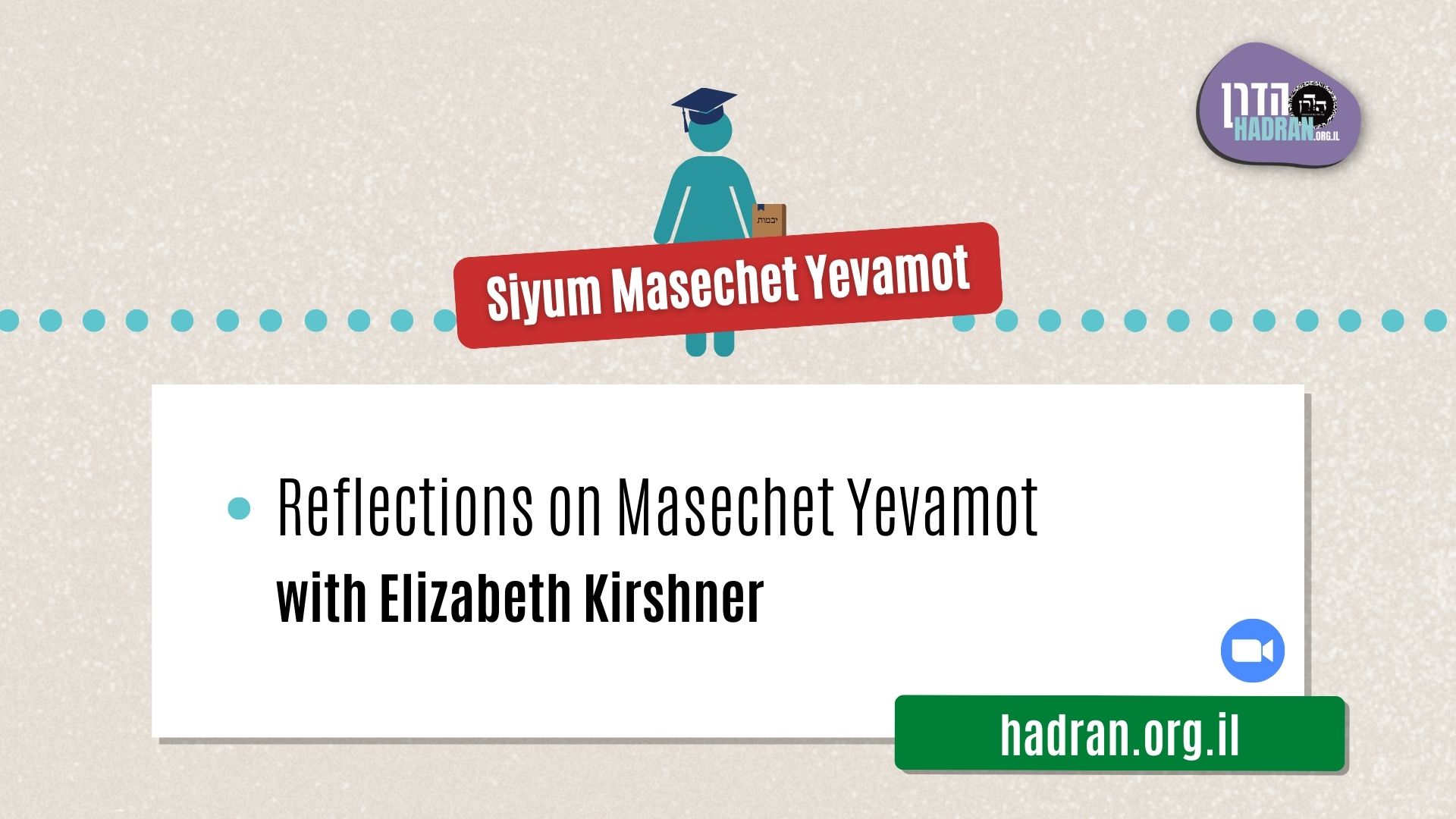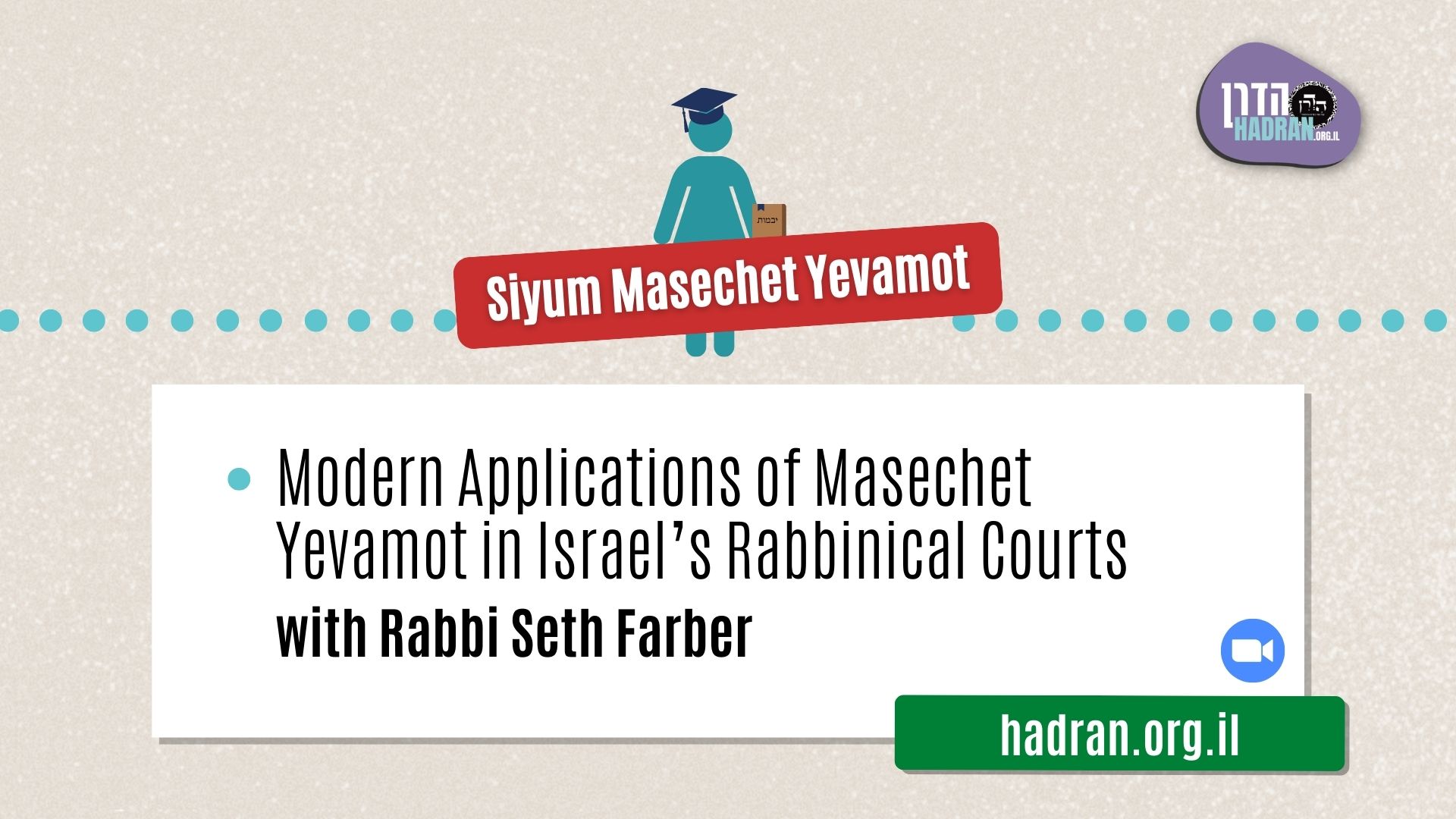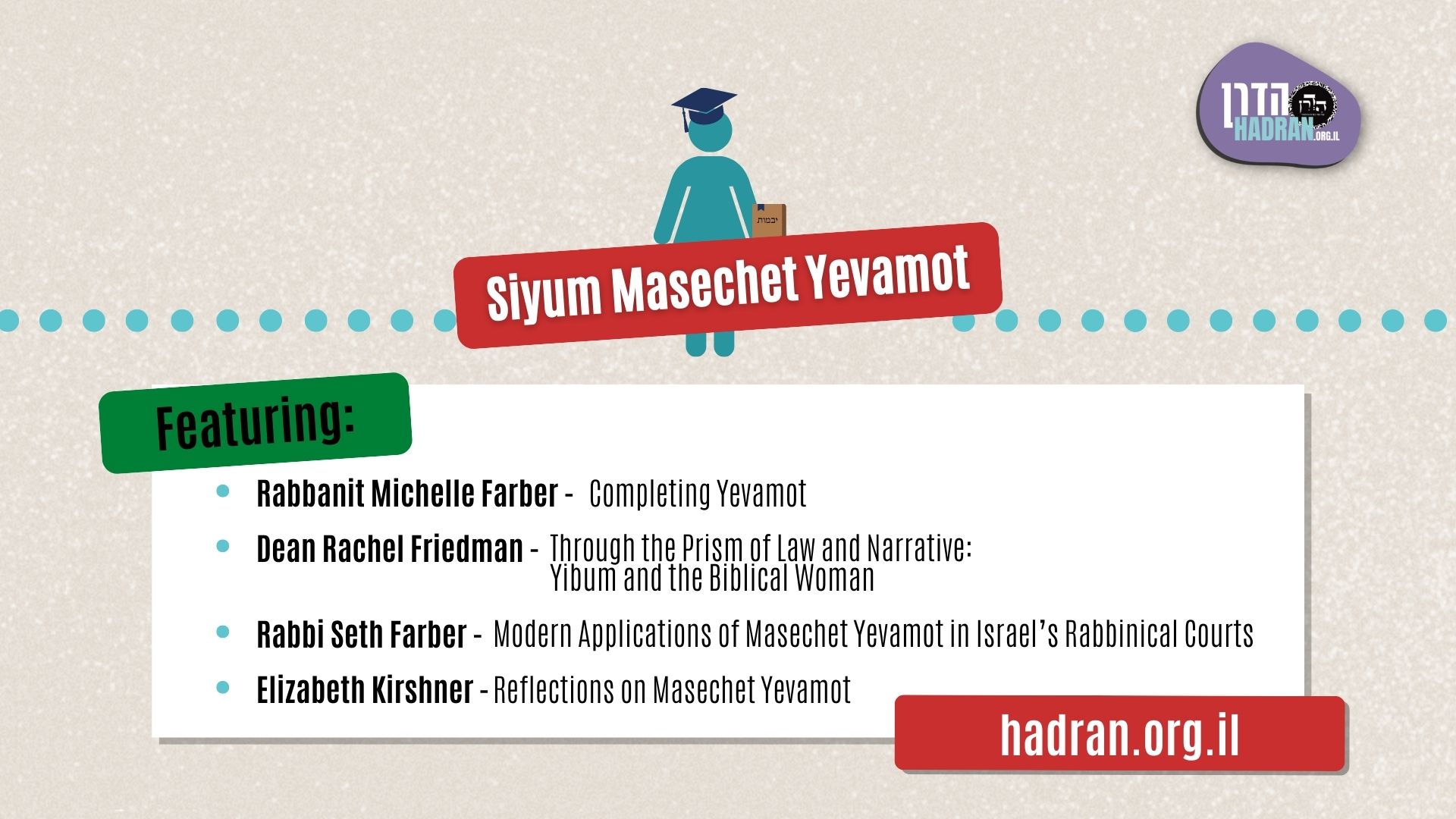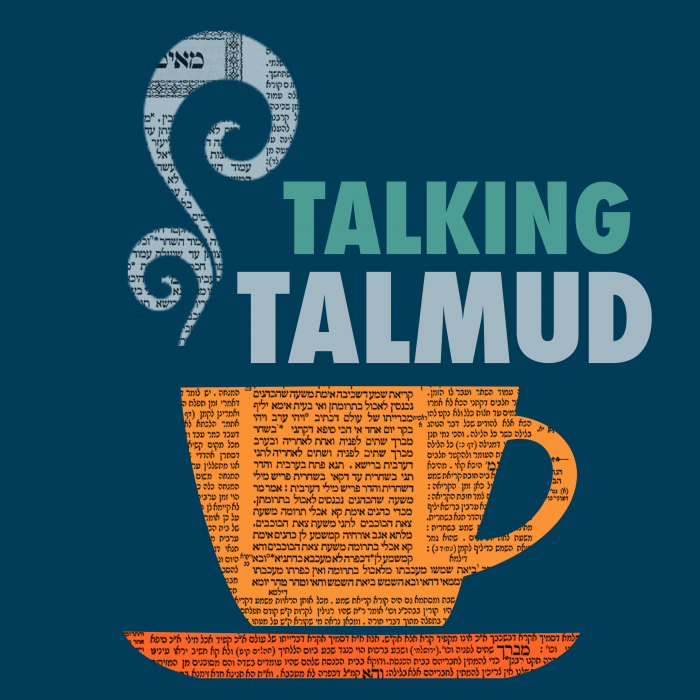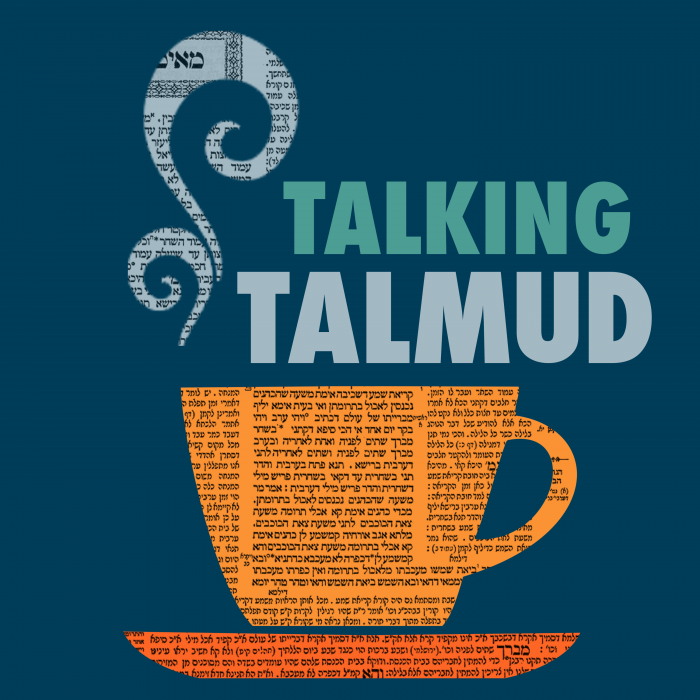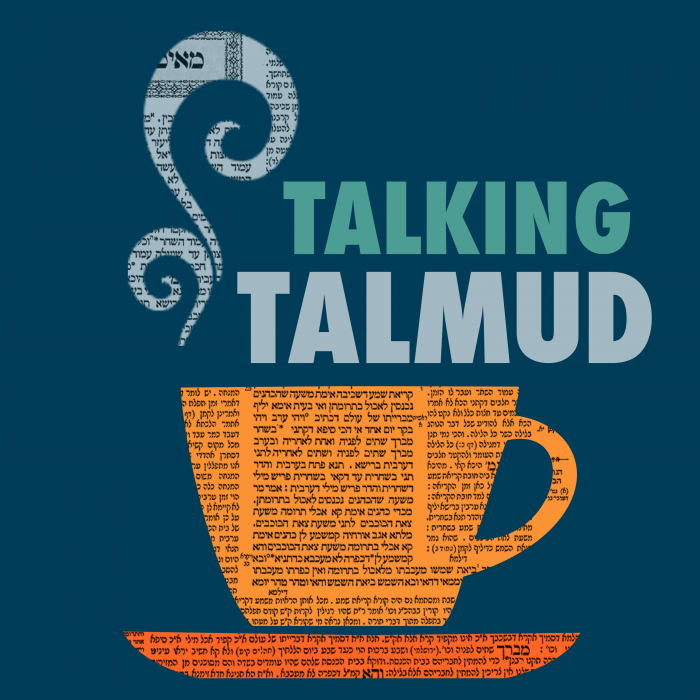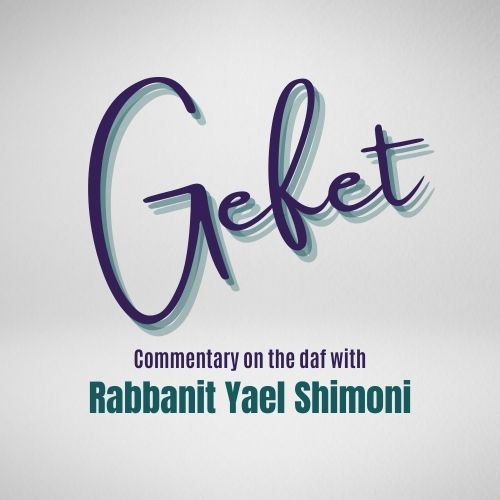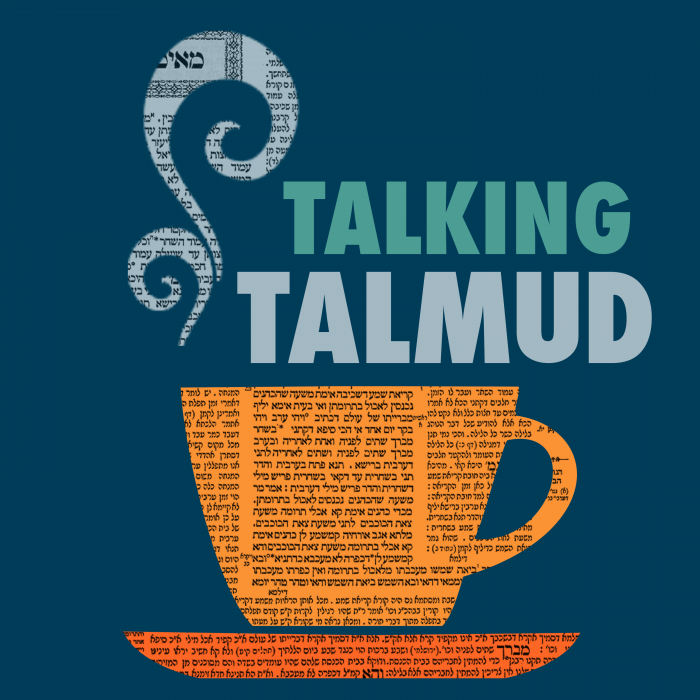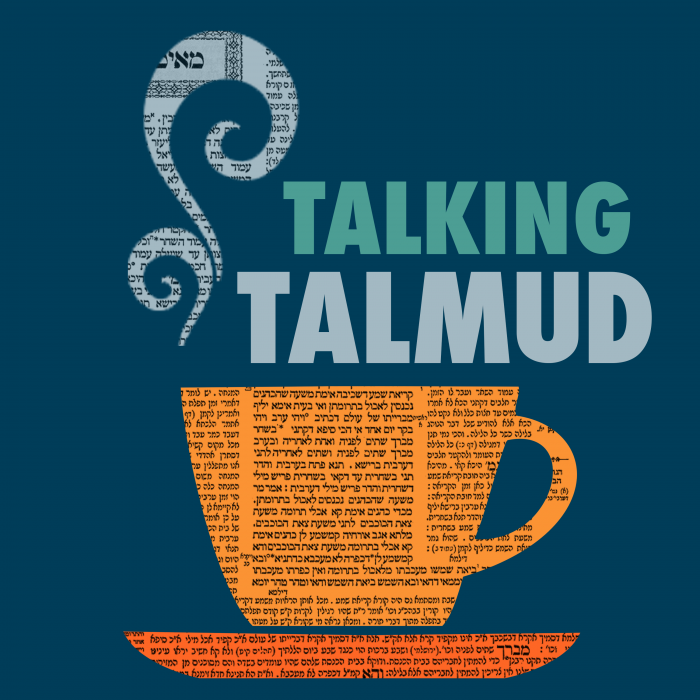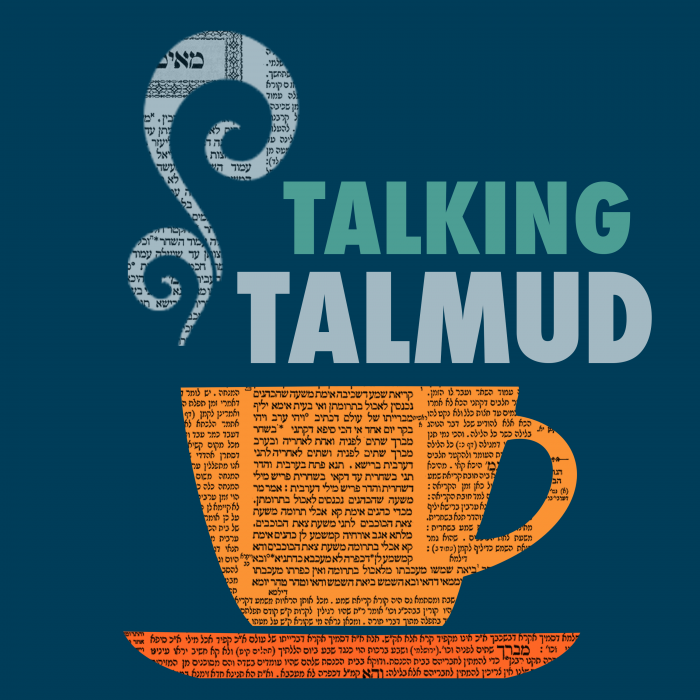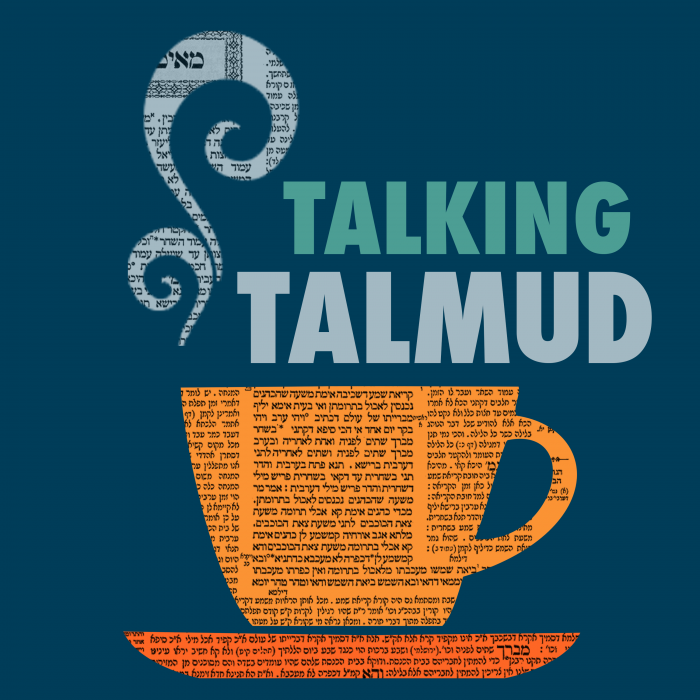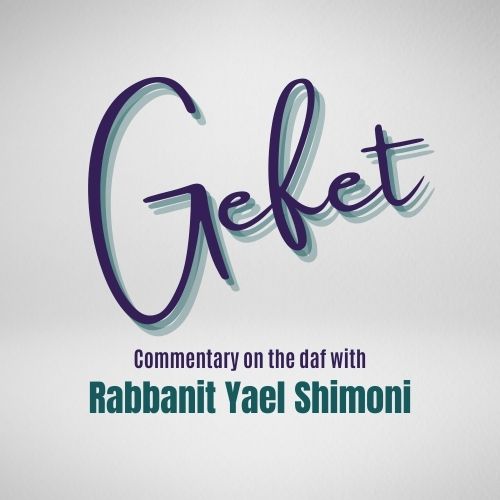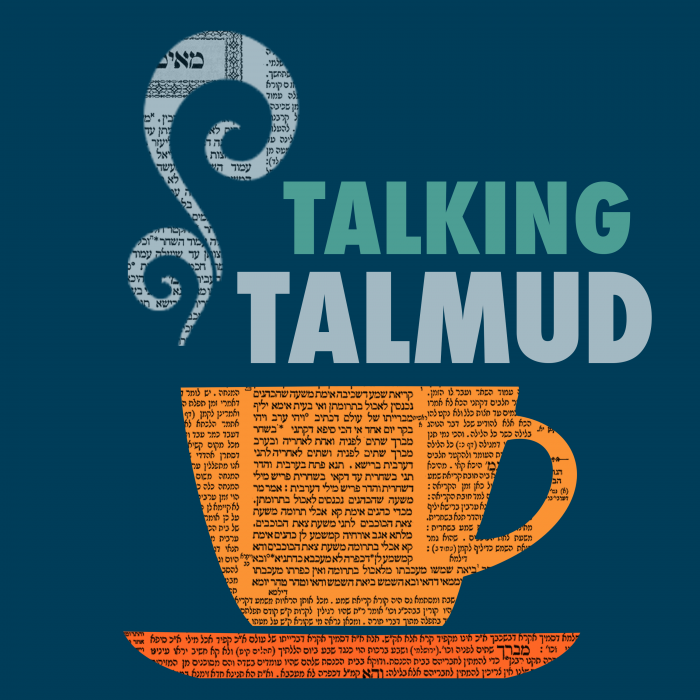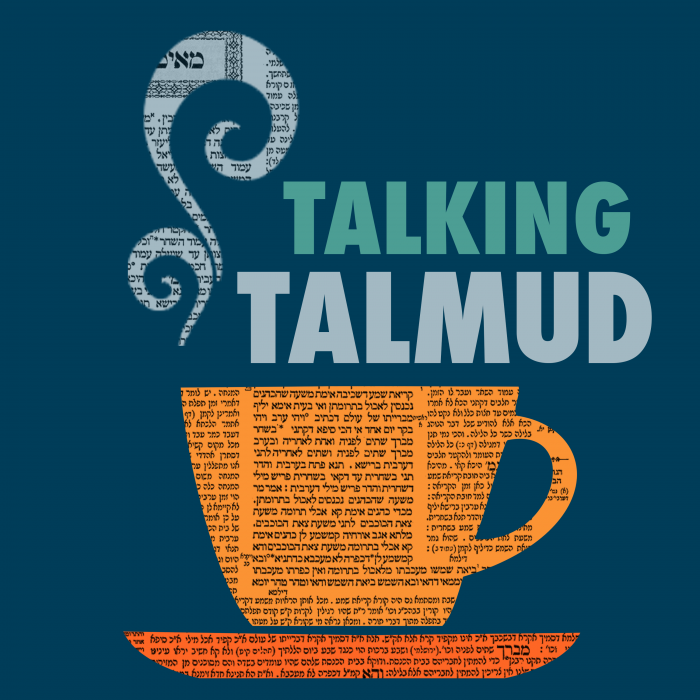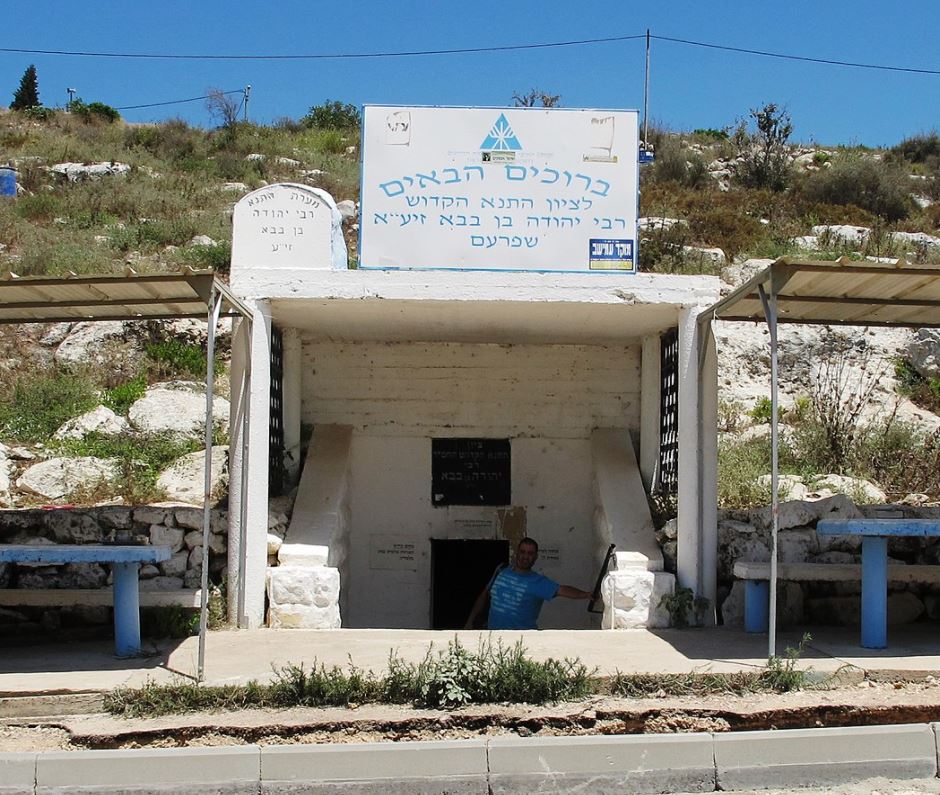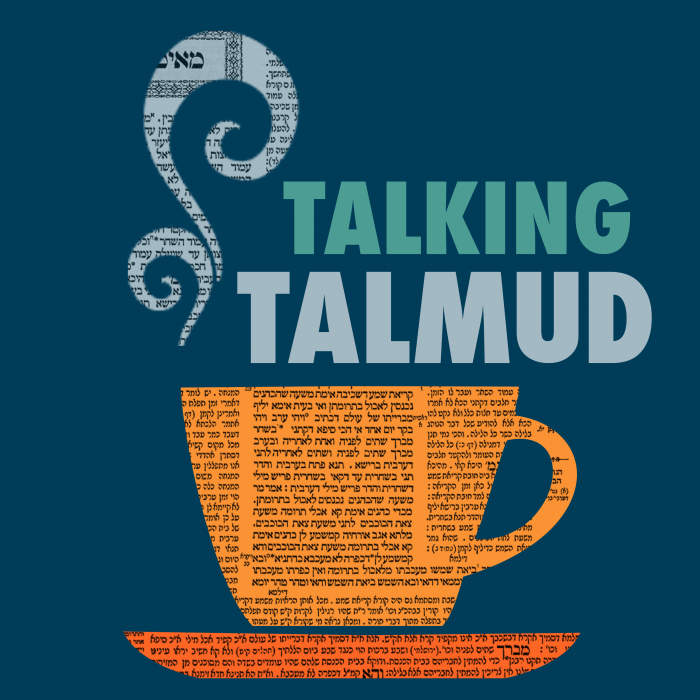Yevamot 41
הָךְ דְּאָזְלָא בַּהֲדַהּ לְבֵי דִינָא, גְּזַרוּ בְּהוּ רַבָּנַן. הַאי דְּלָא אָזְלָא בַּהֲדַהּ לְבֵי דִּינָא, לָא גְּזַרוּ בְּהוּ רַבָּנַן.
The Gemara explains: With regard to that woman, the relative of the ḥalutza, who often goes together with the ḥalutza to court, since she is present in the court during the ḥalitza, people might mistakenly assume that it was she who actually performed ḥalitza. Were the yavam permitted to marry her rival wife, people might incorrectly conclude that it is permitted to marry the rival wife of one’s ḥalutza. To preclude this possibility, the Sages decreed with regard to her that her rival wife should be forbidden. However, with regard to this woman, the rival wife of the ḥalutza, who does not go together with the ḥalutza to court, since she is never present in the court during the ḥalitza, there is no concern that people will mistake her for the ḥalutza herself. Consequently, the Sages did not see any reason to decree with regard to her that her relatives should be forbidden.
מַתְנִי׳ הַחוֹלֵץ לִיבִמְתּוֹ, וְנָשָׂא אָחִיו אֶת אֲחוֹתָהּ, וָמֵת — חוֹלֶצֶת וְלֹא מִתְיַבֶּמֶת. וְכֵן הַמְגָרֵשׁ אֶת אִשְׁתּוֹ, וְנָשָׂא אָחִיו אֶת אֲחוֹתָהּ, וָמֵת — הֲרֵי זוֹ פְּטוּרָה.
MISHNA: In the case of a yavam who performed ḥalitza with his yevama and then his brother married her sister and died, the sister performs ḥalitza with the yavam, but she may not enter into levirate marriage with him, since as a sister of his ḥalutza she is forbidden to him. And similarly, in the case of one who divorced his wife and his brother married her sister and died, then that woman is exempt both from ḥalitza and from consummating levirate marriage, since as the sister of his former wife she is forbidden to him.
שׁוֹמֶרֶת יָבָם שֶׁקִּידֵּשׁ אָחִיו אֶת אֲחוֹתָהּ — מִשּׁוּם רַבִּי יְהוּדָה בֶּן בְּתִירָא אָמְרוּ, אוֹמְרִים לוֹ: הַמְתֵּן עַד שֶׁיַּעֲשֶׂה אָחִיךָ מַעֲשֶׂה.
In the case of a widow waiting for her yavam to consummate levirate marriage or perform ḥalitza with her, and the brother of the yavam betrothed her sister, they said in the name of Rabbi Yehuda ben Beteira: They say to the brother: Wait and do not marry the woman you betrothed until your brother performs an act, either of ḥalitza or of consummating the levirate marriage, as until he does there remains a levirate bond between the yevama and each of the brothers, and it is prohibited to marry the sister of a woman to whom one is bound by a levirate bond.
חָלַץ לָהּ אָחִיו אוֹ כְּנָסָהּ — יִכְנוֹס אֶת אִשְׁתּוֹ. מֵתָה הַיְּבָמָה — יִכְנוֹס אֶת אִשְׁתּוֹ. מֵת יָבָם — יוֹצִיא אֶת אִשְׁתּוֹ בְּגֵט, וְאֵשֶׁת אָחִיו בַּחֲלִיצָה.
If a brother of the one who betrothed the sister of the yevama performed ḥalitza with the yevama or consummated a levirate marriage with her, since by doing so the levirate bond between the yevama and the one who betrothed her sister is dissolved, he may then enter into marriage with his wife, who until that point was only betrothed to him, as she is no longer the sister of a woman to whom he is bound by a levirate bond. Similarly, if the yevama died, since his levirate bond to her is dissolved upon her death, he may proceed to enter into marriage with his betrothed wife. However, if the yavam died without performing an act that would have dissolved the levirate bond, he must divorce his wife with a bill of divorce, as she is forbidden to him as the sister of a woman to whom he is bound by a levirate bond, and his brother’s wife he must send out with ḥalitza, as she is forbidden to him as the sister of his divorcée.
גְּמָ׳ מַאי ״וְכֵן״? אֵימָא: ״אֲבָל הַמְגָרֵשׁ״.
GEMARA: The mishna considers two cases in which there is no possibility of consummating levirate marriage with a yevama. In the first case the reason is that she is the sister of one’s ḥalutza, and in the second it is that she is the sister of one’s divorcée. The mishna appears to compare the two cases by introducing the second case with: And similarly. The Gemara questions this: What is the meaning of: And similarly? The two cases are not similar; in the first case the yevama must perform ḥalitza, and in the second she is entirely exempt from the need to do anything. The Gemara answers: Emend the mishna and say: However, one who divorces.
אָמַר רֵישׁ לָקִישׁ, כָּאן שָׁנָה רַבִּי: אֲחוֹת גְּרוּשָׁה מִדִּבְרֵי תוֹרָה, אֲחוֹת חֲלוּצָה מִדִּבְרֵי סוֹפְרִים.
The Gemara explains the reason for the difference between the two cases: Reish Lakish said: Here, through this mishna, Rabbi Yehuda HaNasi taught that a sister of one’s divorcée is forbidden to him by Torah law, and that is why she is entirely exempt, whereas a sister of a ḥalutza is forbidden to him only by rabbinic law, and therefore, since there is still a levirate bond between her and the yavam, she requires ḥalitza to release her from it.
שׁוֹמֶרֶת יָבָם שֶׁקִּידֵּשׁ וְכוּ׳. אָמַר שְׁמוּאֵל: הֲלָכָה כְּדִבְרֵי רַבִּי יְהוּדָה בֶּן בְּתֵירָא.
§ The mishna states that in the case of a widow waiting for her yavam where the brother of the yavam betrothed her sister, Rabbi Yehuda ben Beteira said that the brother may not proceed to marry his betrothed. The Gemara cites a ruling on this matter: Shmuel said: The halakha is in accordance with the statement of Rabbi Yehuda ben Beteira.
אִיבַּעְיָא לְהוּ: מֵתָה אִשְׁתּוֹ, מַהוּ בִּיבִמְתּוֹ? רַב וְרַבִּי חֲנִינָא דְּאָמְרִי תַּרְוַיְיהוּ: מֵתָה אִשְׁתּוֹ — מוּתָּר בִּיבִמְתּוֹ. שְׁמוּאֵל וְרַב אַסִּי דְאָמְרִי תַּרְוַיְיהוּ: מֵתָה אִשְׁתּוֹ — אָסוּר בִּיבִמְתּוֹ.
A dilemma was raised before the Sages: If a yavam is betrothed to the sister of his yevama, then since the yevama is his betrothed wife’s sister, it is forbidden for him to consummate a levirate marriage with her. However, if his betrothed wife died, what is the halakha with regard to his yevama; is he then permitted to consummate a levirate marriage with her? It is Rav and Rabbi Ḥanina who both say: If his wife died, he is permitted to consummate a levirate marriage with his yevama. Their opinion is disputed by Shmuel and Rav Asi, who both say: If his wife died, he is forbidden to his yevama.
אָמַר רָבָא: מַאי טַעְמָא דְּרַב — מִשּׁוּם דַּהֲוַאי יְבָמָה שֶׁהוּתְּרָה וְנֶאֶסְרָה, וְחָזְרָה וְהוּתְּרָה, תַּחְזוֹר לְהֶיתֵּירָהּ הָרִאשׁוֹן.
Rava said: What is Rav’s reasoning? She is permitted due to the fact that she is a yevama who, when her husband died, was permitted to the yavam, and then when the yavam betrothed her sister she became forbidden to him as his wife’s sister, and then when his wife died the yevama reverted to her original status and was permitted to him. As such, she should also revert to her original permitted status with regard to levirate marriage and be permitted to consummate a levirate marriage with the yavam.
מֵתִיב רַב הַמְנוּנָא: שְׁלֹשָׁה אַחִין, שְׁנַיִם נְשׂוּאִין שְׁתֵּי אֲחָיוֹת, וְאֶחָד מוּפְנֶה. מֵת אֶחָד מִבַּעֲלֵי אֲחָיוֹת, וְעָשָׂה בָּהּ מוּפְנֶה מַאֲמָר, וְאַחַר כָּךְ מֵת אָחִיו הַשֵּׁנִי,
Rav Hamnuna raised an objection from that which was taught in a baraita: With regard to a case of three brothers, two of whom are married to two sisters and one of whom is a bachelor, if one of the sisters’ husbands died and the bachelor performed levirate betrothal with that sister, and afterward the second brother who was married to the other sister died, and so his wife also happened before the bachelor for levirate marriage, the bachelor is then bound to each of the sisters through a levirate bond. In such a case it is prohibited for the bachelor to consummate a levirate marriage with either one, as it is prohibited to marry the sister of a woman to whom one is bound through a levirate bond.
וְאַחַר כָּךְ מֵתָה אִשְׁתּוֹ אַחֲרָיו — אוֹתָהּ יְבָמָה חוֹלֶצֶת וְלֹא מִתְיַבֶּמֶת.
And if afterward the wife of the second brother died after him, i.e., after her husband had already died, which restored the original situation in which the bachelor was bound by a levirate bond only to the widow of the first brother, then in such a case that yevama, the widow of the first brother, performs ḥalitza but may not enter into levirate marriage.
וְאַמַּאי? תֶּיהְוֵי כִּיבָמָה שֶׁהוּתְּרָה וְנֶאֶסְרָה וְחָזְרָה וְהוּתְּרָה, תַּחְזוֹר לְהֶיתֵּירָהּ הָרִאשׁוֹן!
Rav Hamnuna explains the challenge from the baraita: But why may she not consummate the levirate marriage? She should be like a yevama who was initially permitted to her yavam, and then became forbidden to him, and then reverted to her original status and was permitted, and so in this case she should also revert to her original permitted status with regard to levirate marriage and be permitted to consummate a levirate marriage with him. The fact that the baraita rules that she is prohibited from consummating the marriage demonstrates that she does not revert to her original permitted status.
אִישְׁתִּיק. לְבָתַר דִּנְפַק אֲמַר: אַמַּאי לָא אֲמַרְתְּ לֵיהּ, רַבִּי אֶלְעָזָר הִיא, דְּאָמַר: כֵּיוָן שֶׁעָמְדָה עָלָיו שָׁעָה אַחַת בְּאִסּוּר — נֶאֶסְרָה עָלָיו עוֹלָמִית?
Rava was silent, as he had no immediate answer. After Rav Hamnuna left the study hall, Rava said to himself: Why did you not say to him that the baraita does not pose a challenge because it is in accordance with the opinion of Rabbi Elazar, who said in a mishna (108b) with regard to the case of a man who divorced his wife, remarried her, and then died childless, that the yevama may not consummate levirate marriage with her yavam because once a yevama has stood before her yavam in a forbidden state, even for a single moment, she remains forbidden to him forever, and in that case, during the period she was divorced from her husband she was forbidden to her yavam? The Rabbis, however, disagree with his opinion, and the halakha is ruled in accordance with their opinion.
הֲדַר אֲמַר: אֵימוֹר דְּאָמַר רַבִּי אֶלְעָזָר — הֵיכָא דְּלָא חַזְיָא בִּשְׁעַת נְפִילָה, אֲבָל הֵיכָא דְּחַזְיָא בִּשְׁעַת נְפִילָה, מִי אָמַר?
He then said to himself: It is not certain that the baraita is in accordance with the opinion of Rabbi Elazar because one could say that Rabbi Elazar said his opinion only where she was not suitable for the yavam, i.e., she was forbidden to him, already from the time of her happening before her yavam for levirate marriage at the moment of her husband’s death. However, where she was suitable for her yavam at the time of her happening before him and became forbidden to him only at some later point, as in the case of a yavam who betrothed the sister of his yevama, did he actually say that if the reason for the prohibition is removed then she does not return to her permissible state? If the baraita does not represent the opinion of Rabbi Elazar, then it must be unanimously agreed upon, and therefore it indeed poses a challenge.
הֲדַר אֲמַר: אִין, וְהָתַנְיָא, רַבִּי אֶלְעָזָר אוֹמֵר: מֵתָה יְבִמְתּוֹ — מוּתָּר בְּאִשְׁתּוֹ, מֵתָה אִשְׁתּוֹ — אוֹתָהּ יְבָמָה חוֹלֶצֶת וְלֹא מִתְיַבֶּמֶת.
He then said: Yes, actually, Rabbi Elazar did state his opinion even in such a case, and so it is taught in a baraita: With regard to a yavam who betrothed the sister of his yevama, Rabbi Elazar says: If his yevama dies, he is permitted to his wife. If his wife dies, that yevama performs ḥalitza but may not enter into levirate marriage with him. Therefore, the challenge from the baraita can be dismissed since it represents only Rabbi Elazar’s opinion.
לֵימָא שְׁמוּאֵל וְרַב אַסִּי דְּאָמְרִי כְּרַבִּי אֶלְעָזָר?
The Gemara suggests: Shall we say that Shmuel and Rav Asi, who say that she may not consummate the levirate marriage, hold in accordance with the opinion of Rabbi Elazar?
אֲפִילּוּ תֵּימָא כְּרַבָּנַן, עַד כָּאן לָא קָמִיפַּלְגִי רַבָּנַן עֲלֵיהּ דְּרַבִּי אֶלְעָזָר, אֶלָּא מִשּׁוּם דְּמִנְּפִילָה וְאֵילָךְ לָא מִיתְּסַר עֲלַיְיהוּ, אֲבָל הָכָא דְּאִיתְּסַר — אֲפִילּוּ רַבָּנַן מוֹדוּ.
The Gemara rejects this: You can even say that they hold in accordance with the opinion of the Rabbis, as perhaps the Rabbis disagree with Rabbi Elazar in the case of a man who divorced and remarried his wife and then died childless only due to the fact that in that case, from the time of her happening for levirate marriage and onward she was not forbidden to them, i.e., her yevamin. The fact that the prohibition between her and her yevamin ended before she ever happened before them for levirate marriage means it has no bearing on her current eligibility for levirate marriage. However, here, in the case where the yavam betrothed the sister of his yevama, since she became forbidden after she had already happened before him for levirate marriage, even the Rabbis would agree that she remains permanently ineligible to consummate levirate marriage with him.
מַתְנִי׳ הַיְּבָמָה לֹא תַּחֲלוֹץ וְלֹא תִּתְיַיבֵּם עַד שֶׁיֵּשׁ לָהּ שְׁלֹשָׁה חֳדָשִׁים. וְכֵן כׇּל שְׁאָר הַנָּשִׁים לֹא יִתְאָרְסוּ וְלֹא יִנָּשְׂאוּ עַד שֶׁיְּהוּ לָהֶן שְׁלֹשָׁה חֳדָשִׁים: אֶחָד בְּתוּלוֹת וְאֶחָד בְּעוּלוֹת, אֶחָד גְּרוּשׁוֹת וְאֶחָד אַלְמָנוֹת, אֶחָד נְשׂוּאוֹת וְאֶחָד אֲרוּסוֹת.
MISHNA: A yevama may neither perform ḥalitza nor enter into levirate marriage until she has waited three months from the time of her husband’s death. And similarly, all other women may not be betrothed and may not marry until they have waited three months since their previous marriage ended. This waiting period is necessary so that, should a woman give birth shortly after remarrying, it will be obvious who the father of the child is. This applies both to virgins and non-virgins, both to divorcées and widows, and both to women who were married to their previous husbands and women who were only betrothed. All of these women must wait three months before remarrying even though for some of them the reason for doing so does not apply.
רַבִּי יְהוּדָה אוֹמֵר: הַנְּשׂוּאוֹת — יִתְאָרְסוּ, וְהָאֲרוּסוֹת — יִנָּשְׂאוּ. חוּץ מִן הָאֲרוּסוֹת שֶׁבִּיהוּדָה, מִפְּנֵי שֶׁלִּבּוֹ גַּס בָּהּ.
Rabbi Yehuda says: The women who were married to their previous husbands may be betrothed, and the women who were only betrothed to their previous husbands may marry without waiting three months. This is true except for the betrothed women that are in the area of Judea, due to the fact that the groom is familiar with her. The custom in Judea was for the couple to be secluded together before the marriage so that they would become familiar with each other. This led to the possibility that they might cohabit even during their betrothal period. Rabbi Yehuda holds that one does not need to wait three months whenever the reason for doing so does not apply.
רַבִּי יוֹסֵי אוֹמֵר: כׇּל הַנָּשִׁים יִתְאָרְסוּ, חוּץ מִן הָאַלְמָנָה,
Rabbi Yosei says: All of the women may be betrothed within three months even if they were previously married, except for a widow,
מִפְּנֵי הָאִיבּוּל.
due to the mourning period she must observe for her deceased husband.
גְּמָ׳ בִּשְׁלָמָא לֹא תִּתְיַיבֵּם: שֶׁמָּא יִהְיֶה הַוָּלָד בֶּן קַיָּימָא, וְקָא פָגַע בְּאִיסּוּר אֵשֶׁת אָח דְּאוֹרָיְיתָא. אֶלָּא לֹא תַּחְלוֹץ, אַמַּאי?
GEMARA: The Gemara questions the mishna’s opening clause: Granted, she should not enter into levirate marriage, as she might already be pregnant, which would still not be noticeable during the first three months, and perhaps the baby will be viable. In that case it would emerge that she was never subject to the mitzva of levirate marriage, and therefore, if the yavam consummates a levirate marriage he will have encountered the Torah prohibition against engaging in relations with one’s brother’s wife. However, why should she not perform ḥalitza?
לֵימָא תֶּיהְוֵי תְּיוּבְתָּא דְּרַבִּי יוֹחָנָן, דְּאָמַר: חֲלִיצַת מְעוּבֶּרֶת שְׁמָהּ חֲלִיצָה. וְלָאו מִי אוֹתְבִינֵּיהּ לְרַבִּי יוֹחָנָן חֲדָא זִימְנָא?! לֵימָא מֵהָא נָמֵי תֶּיהְוֵי תְּיוּבְתָּא!
The Gemara suggests: Let us say that this mishna, which states that a pregnant woman should not perform ḥalitza, is a conclusive refutation of the opinion of Rabbi Yoḥanan, who said that a ḥalitza performed with a pregnant woman who later miscarries is considered a valid ḥalitza. The Gemara asks: But didn’t they already conclusively refute the opinion of Rabbi Yoḥanan one time previously from other sources? The Gemara rephrases the suggestion: Let us say that from this mishna as well there is a conclusive refutation of the opinion of Rabbi Yoḥanan.
לָא, הָכָא הַיְינוּ טַעְמָא: שֶׁמָּא יְהֵא וָלָד בֶּן קַיָּימָא, וְנִמְצֵאתָ אַתָּה מַצְרִיכָהּ כָּרוֹז לַכְּהוּנָּה.
The Gemara deflects this suggestion: No, it is possible that in the mishna here, this is the reason that she may not perform ḥalitza: Perhaps the offspring will be viable, in which case although she performed the act of ḥalitza, it is entirely meaningless since it was completely unnecessary, and she would remain permitted to marry into the priesthood. However, this could lead to a problem: People might not realize that the ḥalitza she performed was meaningless, and they would think she is a ḥalutza who is prohibited from marrying a priest. It would therefore emerge that if you permit her to perform ḥalitza even though it is possible that she is pregnant, it could be that you will ultimately require a public announcement to be made for her to attest to the fact that the ḥalitza she performed was meaningless and she is in fact still permitted to marry into the priesthood.
וְנַצְרְכַהּ! דִּלְמָא אִיכָּא דְּהָוֵאי בַּחֲלִיצָה וְלָא הָוֵי בְּהַכְרָזָה, וּמַפְסְלוּהָ מִן הַכְּהוּנָּה.
The Gemara wonders why this poses a problem: But why not let her perform ḥalitza even though it is possible she is pregnant, and then, if it becomes necessary, require a public announcement to be made for her? The Gemara explains why one should avoid having to rely on a public announcement: Perhaps there will be some people who are present at the ḥalitza but were not present at the public announcement, and those people will incorrectly disqualify her from marrying into the priesthood. To avoid this situation, the mishna rules that she should wait three months before performing ḥalitza.
תִּינַח אַלְמָנָה. גְּרוּשָׁה — מַאי אִיכָּא לְמֵימַר? מִשּׁוּם דְּמַפְסֵיד לַהּ מְזוֹנוֹת.
The Gemara asks: This answer works out well with regard to a widow because as a widow she is currently still permitted to marry into the priesthood, but with regard to a divorcée, who is already prohibited from marrying into the priesthood, what is there to say; why shouldn’t she perform ḥalitza immediately? The Gemara provides an alternative reason to delay the ḥalitza: The reason is because by performing ḥalitza immediately she will forfeit the sustenance payments from her deceased husband’s estate, which she otherwise would have been entitled to for the first three months. Since she is not permitted to remarry during those three months, she will have no means of support. Therefore, she should wait until after three months have passed before performing ḥalitza.
תִּינַח נְשׂוּאָה. אֲרוּסָה גְּרוּשָׁה — מַאי אִיכָּא לְמֵימַר?
The Gemara asks: This answer works out well with regard to a woman who was married to her previous husband and who is therefore entitled to sustenance payments, but with regard to a divorcée who was only betrothed to her previous husband, what is there to say? She is neither entitled to receive sustenance payments nor is she permitted to marry into the priesthood. Why, then, shouldn’t she perform ḥalitza immediately?
אֶלָּא מִשּׁוּם דְּרַבִּי יוֹסֵי, דְּתַנְיָא: מַעֲשֶׂה בְּאָדָם אֶחָד שֶׁבָּא לִפְנֵי רַבִּי יוֹסֵי. אָמַר לוֹ: מַהוּ לַחְלוֹץ בְּתוֹךְ שְׁלֹשָׁה? אָמַר לוֹ: לֹא תַּחְלוֹץ. וְתַחְלוֹץ, וּמָה בְּכָךְ?
The Gemara therefore provides an alternative reason to delay the ḥalitza: Rather, it is due to that which Rabbi Yosei stated, as it is taught in a baraita: There was an incident involving a certain man who came before Rabbi Yosei. The man said to him: What is the halakha with regard to performing ḥalitza within three months of the husband’s death? He said to him: She may not perform ḥalitza. He asked him: Let her perform ḥalitza; what would be the problem with that? Even if she is pregnant, no prohibition will have been transgressed.
קָרָא עָלָיו מִקְרָא זֶה: ״וְאִם לֹא יַחְפֹּץ״, הָא אִם חָפֵץ — יִבֵּם. כׇּל הָעוֹלֶה לְיִבּוּם — עוֹלֶה לַחֲלִיצָה כּוּ׳.
To explain his ruling, Rabbi Yosei recited this verse about him: “And if the man does not wish to take his yevama” (Deuteronomy 25:7) in levirate marriage, then he must perform ḥalitza. By inference, the possibility of performing ḥalitza exists only in a case in which if he wishes he may consummate the levirate marriage. This teaches the principle that one who is eligible for levirate marriage is eligible for ḥalitza, and one who is ineligible for levirate marriage is ineligible for ḥalitza. This includes even a woman who is temporarily prohibited from marrying, e.g., a woman in the first three months following a previous marriage.
מֵתִיב רַב חִינָּנָא: הַסְּפֵקוֹת חוֹלְצוֹת וְלֹא מִתְיַבְּמוֹת.
Rav Ḥinnana raised an objection from the following baraita: Those women whose status as a yevama is uncertain perform ḥalitza but may not enter into levirate marriage. According to this baraita, there are in fact cases in which a woman is eligible for ḥalitza but may not enter into levirate marriage.
מַאי סְפֵקוֹת? אִילֵּימָא סְפֵק קִדּוּשִׁין — אַמַּאי לָא מִתְיַבְּמוֹת? תִּתְיַיבֵּם, וְאֵין בְּכָךְ כְּלוּם.
The Gemara clarifies the case: What is the case of women whose status as a yevama is uncertain? If we say it is referring to a woman whose betrothal to her previous husband is uncertain, then why does she not enter into levirate marriage? Let her enter into levirate marriage, and there is no problem with that, because if the betrothal was never valid, then she is permitted to the yavam as she is not his brother’s wife; and if it was valid, then she is now obligated to enter into levirate marriage with him.
אֶלָּא לָאו, סָפֵק שֶׁקִּידֵּשׁ אַחַת מִשְׁתֵּי אֲחָיוֹת, וְאֵינוֹ יוֹדֵעַ אֵיזוֹ מֵהֶן קִידֵּשׁ. וְקָתָנֵי: חוֹלֶצֶת!
Rather, is it not referring to a case of uncertainty in which a man betrothed one of two sisters and he does not know which one of them he betrothed? If that man then died childless, the yavam may not consummate the levirate marriage with either sister because it is possible that he will do so with the sister who was not betrothed to his brother, who is therefore forbidden to him as the sister of a woman who is bound to him by a levirate bond. This is in fact the case of the baraita, and the baraita teaches that she performs ḥalitza, even though she is not permitted to enter into levirate marriage.
הָכִי הַשְׁתָּא?! הָתָם, אִם יָבֹא אֵלִיָּהוּ וְיֹאמַר דְּהָא קִידֵּשׁ — בַּת חֲלִיצָה וְיִיבּוּם הִיא,
The Gemara rejects the proof: How can these cases be compared? There, in the case of uncertainty, if Elijah were to come and say that the man betrothed this one of the sisters, then she would be eligible for ḥalitza and levirate marriage. It is clear, then, that fundamentally the sister who was betrothed is actually eligible for levirate marriage, and it is merely a lack of knowledge that prevents her from entering into it.
הָכָא, אִם יָבֹא אֵלִיָּהוּ וְיֹאמַר דְּהָא לָא אִיעַבַּרָה — מִי מַשְׁגְּחִ[ינַן] בֵּיהּ, וּ[מְ]יַבְּמִינַן לַהּ? הָא קְטַנָּה דְּלָאו בַּת אִיעַבּוֹרֵי הִיא, וַאֲפִילּוּ הָכִי צְרִיכָה לְהַמְתִּין שְׁלֹשָׁה חֳדָשִׁים.
However, here, with regard to a woman during the first three months following her previous marriage, if Elijah were to come and say that this woman is not pregnant, would one pay heed to him and would we allow the yavam to consummate levirate marriage? Certainly not, as is evident from the fact that a minor girl, who cannot become pregnant, must also wait three months. Evidently, the requirement to wait three months applies in all situations, even those in which the reason for the requirement is irrelevant. Therefore, by virtue of that decree the yevama is considered to be fundamentally ineligible for levirate marriage and similarly is ineligible for ḥalitza.
תָּנוּ רַבָּנַן: יְבָמָה, שְׁלֹשָׁה חֳדָשִׁים הָרִאשׁוֹנִים נִזּוֹנֶת מִשֶּׁל בַּעַל. מִכָּאן וְאֵילָךְ, אֵינָהּ נִזּוֹנֶת לֹא מִשֶּׁל בַּעַל וְלֹא מִשֶּׁל יָבָם.
§ The Gemara mentioned that a yevama is supported from her deceased husband’s estate. It now proceeds to cite a baraita that teaches this halakha: The Sages taught: A yevama during the first three months following her husband’s death receives sustenance payments from the husband’s estate. This is because her previous marriage to him is the cause of her current unmarried state, since it is due to that marriage that she must first wait three months before remarrying. From this point forward, she does not receive sustenance payments, neither from the husband’s estate nor from the yavam, as he has not yet consummated a levirate marriage with her.
עָמַד בַּדִּין וּבָרַח — נִזּוֹנֶת מָשָׁל יָבָם.
The baraita continues: If the yavam was brought to judgment and it was decided that he was obligated to either consummate the levirate marriage with her or perform ḥalitza, and he ran away to avoid doing so, she receives sustenance payments from the estate of the yavam, which is his penalty for neglecting his duty.
נָפְלָה לִפְנֵי יָבָם קָטָן (מַאי)? מִיָּבָם לֵית לַהּ. מִבַּעַל מַאי?
The Gemara asks: If she happened before her yavam who is a minor for levirate marriage, what is the halakha? From the yavam she does not have any right to sustenance payments because, as a minor, he is unable to consummate a levirate marriage, but as to payments from her husband’s estate, what is the halakha? Since his death placed her in a situation that forces her to remain in an unmarried state, does his estate have to take the responsibility of supporting her?
פְּלִיגִי בַּהּ רַב אַחָא וְרָבִינָא, חַד אָמַר: אִית לַהּ, וְחַד אֲמַר: לֵית לַהּ, וְהִלְכְתָא: לֵית לַהּ, מִשְּׁמַיָּא קַנְסוּהּ.
Rav Aḥa and Ravina disagree with regard to this matter: One said she does have rights to sustenance payments, and the other one said she does not have any rights. And the halakha is that she does not have any rights to sustenance payments. This is because the husband is not considered to be responsible for her situation; rather, it is thought that she was penalized by Heaven.
תָּנוּ רַבָּנַן: יְבָמָה שֶׁחָלְצוּ לָהּ אַחִים בְּתוֹךְ שְׁלֹשָׁה — צְרִיכָה לְהַמְתִּין שְׁלֹשָׁה חֳדָשִׁים.
§ The Sages taught: In the case of a yevama with whom the brothers of her deceased husband performed ḥalitza within three months of her husband’s death, she still needs to wait three months before remarrying.



